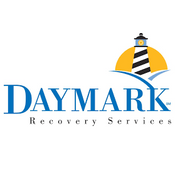5 Signs Your Loved One Is Abusing Opioids

Doctors often prescribe opiates such as fentanyl and morphine as painkillers for patients. However, when used incorrectly, these powerful drugs can become addictive. If you are concerned that a loved one is abusing opioids, it’s important to know the signs so you can take action and help. With the right medical care and counseling, your loved one can recover and avoid further addiction. The following are some common signs that your loved one may be abusing opioids.
How to Recognize Opioid Abuse
They Ignore Medication Instructions
 If your loved one has a prescription for an opioid, they should take the medication as directed by a doctor. A common behavior of drug abuse is using more than the prescribed dose. Some individuals who abuse opioids will also see multiple doctors to obtain more than one prescription.
If your loved one has a prescription for an opioid, they should take the medication as directed by a doctor. A common behavior of drug abuse is using more than the prescribed dose. Some individuals who abuse opioids will also see multiple doctors to obtain more than one prescription.
They Take Opioids When They Don’t Need To
You might notice that your friend or family member takes opioids even when they are not in pain. They might mask the behavior as a preventive measure, steal medication from other people, or lie to their doctor to receive a refill. If this type of abuse continues, it could lead to addiction.
They Engage in Risky Behavior
Individuals who are abusing opioids may not exercise caution in high-risk activities, such as driving under the influence of drugs or alcohol. They may also engage in these risky behaviors in place of activities they once enjoyed. Their actions may frequently endanger themselves or others, and they may be difficult to reason with.
They Have Frequent Mood Swings
Prescription drug abuse can cause individuals to feel happy one moment and angry the next. If your loved one is exhibiting this behavior around you, remember that you are not at fault. Frequent mood swings are a common sign of opioid abuse and may be accompanied by difficulty sleeping and social withdrawal.
They Show Physical Signs of Opioid Abuse
If your loved one is abusing opioids, they may show several physical symptoms. This includes constricted pupils, slowed breathing, visible confusion, drowsiness, and flushed skin. They may also become suddenly sleepy to the point of nodding off. Especially if these physical symptoms are present with the above signs, it’s time to encourage your loved one to seek help to prevent addiction.
If you or a loved one is struggling with opioid abuse, you do not need to face recovery on your own. The team at Daymark Recovery Services helps individuals find freedom from substance abuse and addiction. Serving those who need help in North Carolina, the center offers a variety of treatment plans to fit each patient. From medical detox to counseling, they will help you find a recovery approach to fit your needs. To view a full list of their mental health and recovery services, visit them online today.
About the Business
Have a question? Ask the experts!
Send your question

